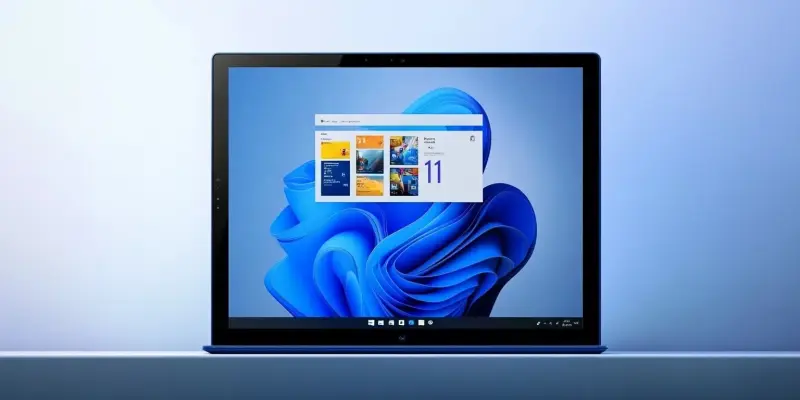A recent update for Windows 11, known as KB5053598, has caused an unintentional yet significant change for users by uninstalling Microsoft’s AI assistant Copilot. This revelation has sparked a variety of reactions among the Windows community, especially as opinions about Copilot have always been mixed. Microsoft addressed the issue, describing it as an unintentional uninstall and unpinning of Copilot from the taskbar, an outcome that has intrigued many users.
In the release notes for the March update, Microsoft acknowledged two primary issues: a problem with Roblox preventing its download from the Microsoft Store and installation issues related to systems with specific Citrix components, impacting the January 2025 Windows security update. While these problems have frustrated users, the unintended removal of Copilot has garnered the most attention. This is likely due to the polarized reception of the AI assistant, with some users welcoming its departure while others seeking its return.
Mixed Reactions to Copilot’s Removal
Copilot, Microsoft’s AI assistant, has always received a mixed bag of responses from users. Some appreciated its integration into the Windows ecosystem, aiding tasks with its machine learning capabilities. However, others found Copilot intrusive and unnecessary. The recent update inadvertently taking away Copilot seemed like a blessing in disguise for those who preferred a cleaner interface without the AI assistant’s presence. On the other hand, users who saw utility in Copilot’s features might find themselves inconvenienced by its sudden removal.
Microsoft has been proactive in offering a solution. They advised affected users to reinstall Copilot from the Microsoft Store and manually pin it back to the taskbar. Additionally, the tech giant assured they were working on a fix to prevent similar issues in future updates. It is evident that while Microsoft aims to enhance user experience through updates and new features, the unintended consequences sometimes create more uproar than intended improvements.
Ongoing Patterns and Resolution Efforts
The pattern of Microsoft’s updates frequently introduces new unforeseen issues. Despite their best efforts, users often face unexpected glitches. The accidental removal of Copilot has heightened discussions about Microsoft’s quality control on their updates while unexpectedly relieving those who are not fond of the AI assistant.
Microsoft’s acknowledgment of the problem, along with their swift solution, demonstrates a commitment to satisfying their customers. By providing a workaround to restore Copilot, Microsoft softens some of the negative feedback. However, this incident underlines the necessity for more thorough testing processes before releasing updates. The overall user sentiment is divided—some appreciate the accidental hiatus of Copilot, while others eagerly await a seamless resolution.
As Microsoft continues to improve Windows 11, it is crucial they learn from these incidents. Addressing user feedback and enhancing comprehensive pre-update testing can prevent such unintended issues. Their dedication to quickly fixing problems shows a move in the right direction, aiming to balance innovation and stability for their user base.

